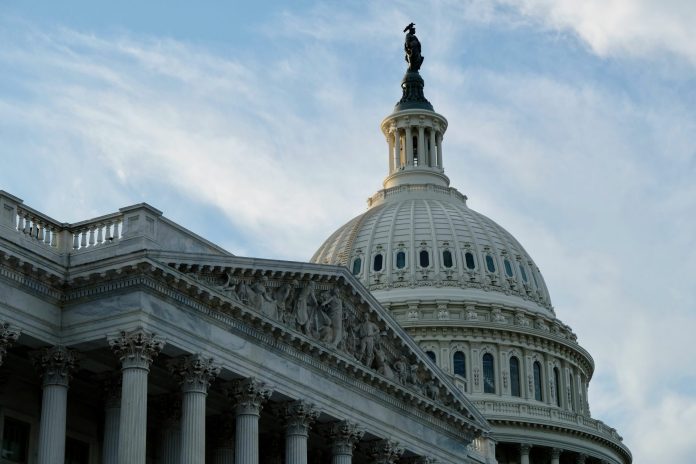Global markets are soaring, seemingly unfazed by the wave of policy upheavals that could challenge US economic dominance, warns Nigel Green, CEO of deVere Group.
His remarks follow the S&P 500 closing at an all-time high and Europe’s Stoxx 600 also reaching fresh peaks, signaling strong investor confidence despite uncertainty.
Equities continue to climb as investors overlook the rapid shifts in policy that could disrupt global trade and financial markets.
“The White House’s ‘flood the zone’ approach extends well beyond tariffs,” Green notes. “From major regulatory rollbacks and fiscal overhauls to realigning global alliances and direct intervention in industry policy, the administration is moving at an unprecedented pace.”
While optimism drives the market rally, experts warn that such aggressive policy shifts could introduce long-term volatility and risks for investors.
“Yet despite the sheer scale of change, investors appear to believe that none of this will dent the market’s upward trajectory,” he notes.
One of the most immediate risks comes from the administration’s confirmation that new tariffs will be imposed selectively, targeting key US trading partners, including Canada, Japan, the EU, India, and Brazil.
These levies, intended to penalize what Washington deems unfair trade practices, are set to provoke retaliation, drive up costs for businesses and consumers, and disrupt intricate global supply chains.
The deVere Group CEO warns that markets are underestimating the broader implications.
“This is an unprecedented moment of economic interventionism, and yet investors are behaving as if nothing has changed. That kind of complacency is a flashing red light.
“The US economy has thrived for decades on stability, predictability, open trade and leadership in global markets—qualities now being put to the test.”
He continues: “The US has been the world’s economic anchor, but if these tariffs spiral into a full-scale trade war, America risks losing its standing as the strongest, most reliable investment destination.
“That is a direct threat to US economic exceptionalism, and global investors must brace for a seismic shift.
“For decades, the US has set itself apart as the economic powerhouse of the world, attracting global investment and driving financial markets forward, even as Europe and China faltered.
“But this dominance is built on stability — a quality now at risk as America turns to protectionism instead of open trade.”
The US economy remains strong, but markets are treating this period of extreme policy intervention as business as usual.
If tariffs spark retaliatory measures from trading partners, key sectors like technology, automotive, and consumer goods could see rising costs eat into margins. If supply chain disruptions intensify, growth forecasts may need to be revised downward. And if escalating protectionism sparks broader economic uncertainty, investors may be forced to rethink their positioning.
“Markets are pricing in continued economic strength, but they’re ignoring the risks mounting in the background,” Nigel Green adds.
“If this pace of policy change continues, investors should expect volatility to rise, not remain at these subdued levels.
“The global economy does not exist in a vacuum. While Wall Street celebrates record highs, businesses are already adjusting their strategies in anticipation of shifting trade dynamics. Some firms will benefit from government intervention, but others will face significant headwinds.
“The assumption that the administration can reshape economic policy without consequences is wishful thinking.”
He concludes: “Confidence is everything in financial markets. The US has long been seen as the most reliable investment destination – hence US exceptionalism. But if these policy shifts start introducing new layers of uncertainty, that perception could change.”



 Bitcoin
Bitcoin  Ethereum
Ethereum  Tether
Tether  XRP
XRP  Solana
Solana  USDC
USDC  Cardano
Cardano  TRON
TRON  Lido Staked Ether
Lido Staked Ether  Avalanche
Avalanche  Toncoin
Toncoin